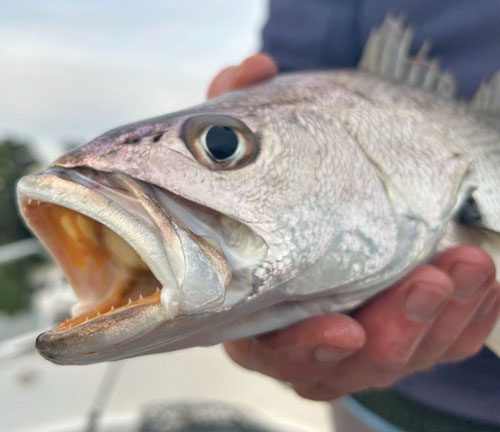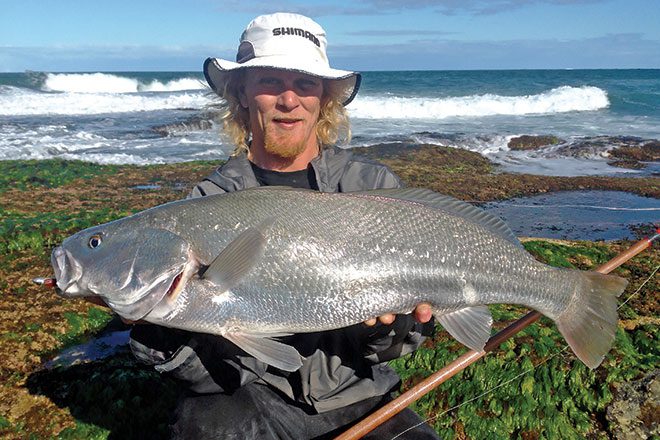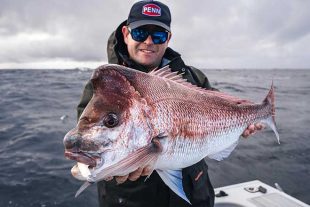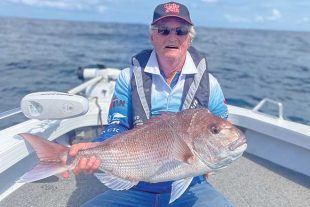Mulloway are an important and iconic species for NSW commercial, recreational and Aboriginal cultural fishers, however stocks in NSW are currently classified as ‘depleted’.
Recovering mulloway stocks in NSW is a key priority for NSW Department of Primary Industries Fisheries.
Despite a range of fishing arrangements being implemented in the past, given the reported data DPI Fisheries managers and scientists have not yet detected measurable improvement in the stock.
However, it is noted that recent unprecedented flooding events may assist in improving future recruitment to the fishable biomass and any juvenile mulloway need to be adequately protected to maximise the success of future recruitment to the fishery.
Based on available data, the recreational and commercial sectors each harvest similar proportions of about 50 percent of the mulloway catch.
A Mulloway Harvest Strategy Working Group was established in 2021 to develop a forward-looking harvest strategy for mulloway in NSW.
The harvest strategy will provide a framework and decision rules to promote stock recovery and equitably manage catch among user groups in the longer term.
In the short to medium term, interim management arrangements are required that will afford greater protection to the depleted stock and support the recovery of mulloway.
DPI Fisheries sought advice from the Mulloway Harvest Strategy Working Group and established advisory councils on additional interim measures to protect the depleted stock.
DPI Fisheries considered the available data and has implemented new interim management arrangements in all fisheries from September 1, 2023.
These interim arrangements have been designed using the best available data to achieve reductions in retained annual catch across all stakeholder groups.

Size limit
Continuation of the 70cm minimum legal length – all sectors.
Bag and boat limit for recreational fishers
Continuation of the daily bag limit of one mulloway per person and a new boat limit of two mulloway per boat per day.
Boat limit for the charter sector
A new boat limit of three mulloway per boat per day.
For take and possession limits for commercial fishers, visit dpi.nsw.gov.au/fishing
The aim of these new interim measures is to provide greater protection to adult fish in order to support the recovery of the currently depleted mulloway population, which will allow all stakeholders to enjoy sustainable access to the fishery into the future.
These arrangements are interim, pending the finalisation and implementation of the formal harvest strategy for mulloway, which will involve new approaches to management of mulloway catch and effort across all fishing sectors.
The draft mulloway harvest strategy will be finalised by the Mulloway Harvest Strategy Working Group soon and this will provide a further opportunity for stakeholder consultation.
DPI Fisheries will continue with the work already underway to promote protection for juvenile mulloway across all fishing sectors.
The work underway to enhance mulloway by-catch reduction in NSW commercial fisheries will continue and technical support will be available to those fishers who require additional assistance to modify fishing operations to avoid mulloway by-catch as part of adapting to the new interim measures.
DPI Fisheries will also continue the recently enhanced compliance and data collection programs for mulloway fishing in NSW across all fishing sectors.
The harvest strategy will provide further guidance to these initiatives.
 Bush ‘n Beach Fishing Magazine Location reports & tips for fishing, boating, camping, kayaking, 4WDing in Queensland and Northern NSW
Bush ‘n Beach Fishing Magazine Location reports & tips for fishing, boating, camping, kayaking, 4WDing in Queensland and Northern NSW









